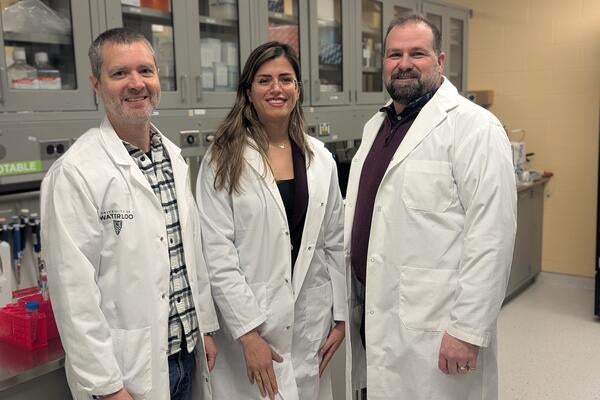
Caving to cravings? Indulging in junk food linked to lapses in brain function
Overindulging in high-calorie snacks is partly caused by lapses in a very specific part of the brain, according to a new University of Waterloo study

Overindulging in high-calorie snacks is partly caused by lapses in a very specific part of the brain, according to a new University of Waterloo study
By Media RelationsThe study, published in Psychosomatic Medicine: Journal of Biobehavioral Medicine, is the first to conclusively link reduced operation of the dorsolateral prefrontal cortex with self-restraint in the dietary context.
“It has long been thought that the dorsolateral prefrontal cortex helps to keep automatic, or knee-jerk, reactions in check,” said Professor Peter Hall, senior author on the study. “We discovered that when you temporarily dampen the operation of this particular part of the brain, strongly engrained—and quite universal—preferences for high calorie foods start to hijack people’s thought patterns and even their eating patterns.”
The prefrontal cortex is known to be implicated in the brain’s executive functions, which typically allow people to engage in voluntary control over their behavior. While prior studies have shown that boosting activity in the prefrontal cortex reduces cravings for unhealthy foods, this is the first study to show that reducing activity leads to more cravings and food consumption.
The study used continuous theta burst stimulation, a form of transcranial magnetic stimulation, to temporarily reduce activity in participants’ left dorsolateral cortex. After receiving theta burst stimulation, participants not only reported greater food cravings for calorie-dense food, but ate more junk food during a taste test than when they received a bogus stimulation.
“This is the first study to demonstrate that taking the prefrontal cortex temporarily offline results in increased snacking,” said Cassandra Lowe, doctoral student in the School of Public Health and Health Systems and lead author on the paper.
The findings will provide a theoretical framework to help shape effective public health interventions, with a focus on preservation of brain health.
“The research suggests that the best solution to effective self-restraint lies in maximizing brain health. Interventions aimed at enhancing or preserving dorsolateral cortex function in healthy populations may reduce the likelihood of obesity and other chronic conditions,” said Hall.
Engaging in aerobic exercise, avoiding alcohol and getting enough sleep are proven methods of maximizing the strength of the prefrontal cortex.
“In the end, if you want to improve your self-control when it comes to snacking, structuring your environment to avoid temptations is crucial; but beyond this, the key is to keep your brain in shape, so that you are up to the task when you encounter temptations. Let’s face it, they are everywhere,” said Hall.

An international team of researchers has proposed ways to train large language models to be wiser and to measure AI wisdom (Getty Images/PhonlamaiPhoto).
Read more
International study suggests ways to train large language models in wise reasoning and measure the wisdom of AI

Read more
Researchers engineer bacteria capable of consuming tumours from the inside out

Hand holding small pieces of cut colourful plastic bottles, which Waterloo researchers are now able to convert into high-value products using sunlight. (RecycleMan/Getty Images)
Read more
Sunlight-powered process converts plastic waste into a valuable chemical without added emissions
The University of Waterloo acknowledges that much of our work takes place on the traditional territory of the Neutral, Anishinaabeg, and Haudenosaunee peoples. Our main campus is situated on the Haldimand Tract, the land granted to the Six Nations that includes six miles on each side of the Grand River. Our active work toward reconciliation takes place across our campuses through research, learning, teaching, and community building, and is co-ordinated within the Office of Indigenous Relations.